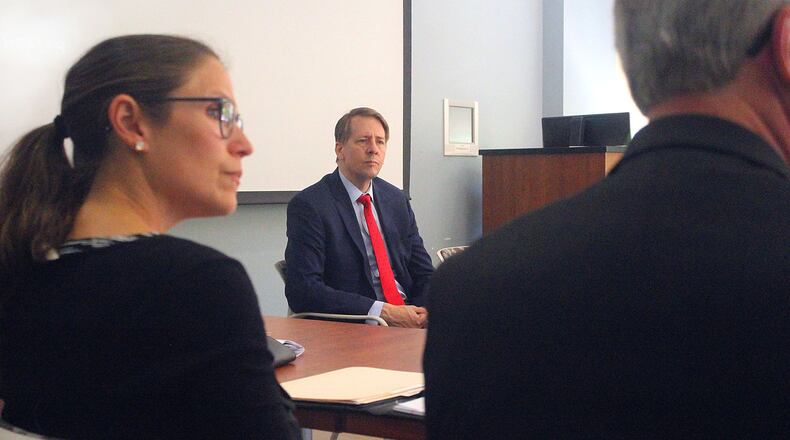DeWine, the current Ohio Attorney General, for many months early this year criticized his primary opponent, Mary Taylor, for supporting Kasich’s Medicaid expansion. Taylor, later in the campaign, said if elected she would end it. DeWine’s plan for handling the opioid crisis, published on his campaign web site, does not mention Medicaid expansion. It does, however, call for passage of a law permitting the governor to declare a public health emergency. The twelve-point plan also includes adding at least 60 more specialized drug courts across Ohio and doubling the substance use treatment capacity in the state.
An estimated 200,000 Ohioans make use of the expanded coverage to pay for addiction services. Loss of the program, said Cordray, would be a costly mistake for taxpayers and hurtful to those in need. “They will show up in emergency rooms with serious and expensive problems. We will all end up paying for that like we used to before Medicaid expansion came to Ohio,” Cordray said.
While Cordray’s Springfield event was clearly part of his campaign, the discussion did not focus on politics, and instead centered on health care policy. Greta H. Mayer, CEO of the Mental Health and Recovery Board of Clark, Greene and Madison Counties said Medicaid expansion has made it possible for her agency to help a growing number of people. “It has gotten people who otherwise would not have health insurance in particular. These folks who have an addiction, an opioid addiction, to get into the doors of a treatment center for the first time and have a chance of recovery and long-term sobriety,” Mayer said.
The drug crisis has had a big impact on the local job market where employers have traditionally rejected any applicant who had a drug conviction in their past. Jason Barlow, President of UAW 402 at Navistar, said the company is gearing up for another round of expansion and has had to adapt to the changing employee landscape, relative to addiction issues. “It has been a large challenge for multiple years. Now that they are looking at a significant amount of hiring again, adding 400 jobs by the end of the year, it has caused the company to evaluate how they do the hiring and recruiting and giving second chances to people too,” Barlow said.
The UAW, said Barlow, has been active in helping employees and their entire families if they need it. “We have an employee assistance representative able to work with the employee, also provide resources for the employee’s spouse, their children and it could be their grandchildren,” Barlow said.
Throughout the hour-long discussion, Cordray asked questions and took notes on innovative ways Springfield community agencies have responded to the opioid crisis through information sharing and coordination of their activities.
Springfield City Commissioner Joyce Chilton said she hoped Medicaid expansion can remain in place. The victims, said Chilton, depend on the coverage as the crisis continues to strike deep into the community. “Family members, friends, everyone knows somebody who has been effected,” Chilton said.
About the Author
